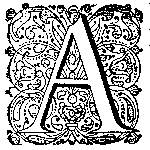Civic Babylonian Pride in Vondel’s Mars Tamed
Baroque Allegory Performing Contradiction in the Dutch Republic
DOI:
https://doi.org/10.51750/emlc13456Keywords:
Vondel, panegyric, baroque contradiction, allegory, Peace of Westphalia, civic governmentAbstract
In 1647, one year ahead of the official celebrations of the Peace of Westphalia, the Dutch poet and playwright Joost van den Vondel published a long panegyric called De getemde Mars (‘Mars Tamed’), a poem fully translated into English for the first time in this article. Despite celebrating the Peace, Vondel did not refrain from presenting extremely violent scenes of war in the middle part of the poem. Surprisingly, however, the war scene shifts from the wars that devastated Europe to a war which Mars wages against Jupiter and his circle of gods. Unable to control Mars, and on the verge of seeing his rule collapse, Jupiter looks for support and finds it in an allegorical maiden representing the Dutch Republic and its main hub Amsterdam. This article argues that the allegory employed by Vondel is set up against itself. The familiar allegorisation of classical material for Christian purposes turns into a baroque allegory that works against principles of theologically underpinned political sovereignty. Here, the poem testifies to a distinct civil pride, with Vondel considering the burgomasters of Amsterdam, which he takes as embodying civil government, as a prominent source of international peace. By 1648, however, the Dutch Republic had also become an imperial and global power that confronted other sovereign states in violent actions. In this context, the poem’s baroque contradictions multiply.
Downloads

Published
Issue
Section
License
Copyright (c) 2023 Frans-Willem Korsten, Lucy H.G. McGourty

This work is licensed under a Creative Commons Attribution-NonCommercial 4.0 International License.





